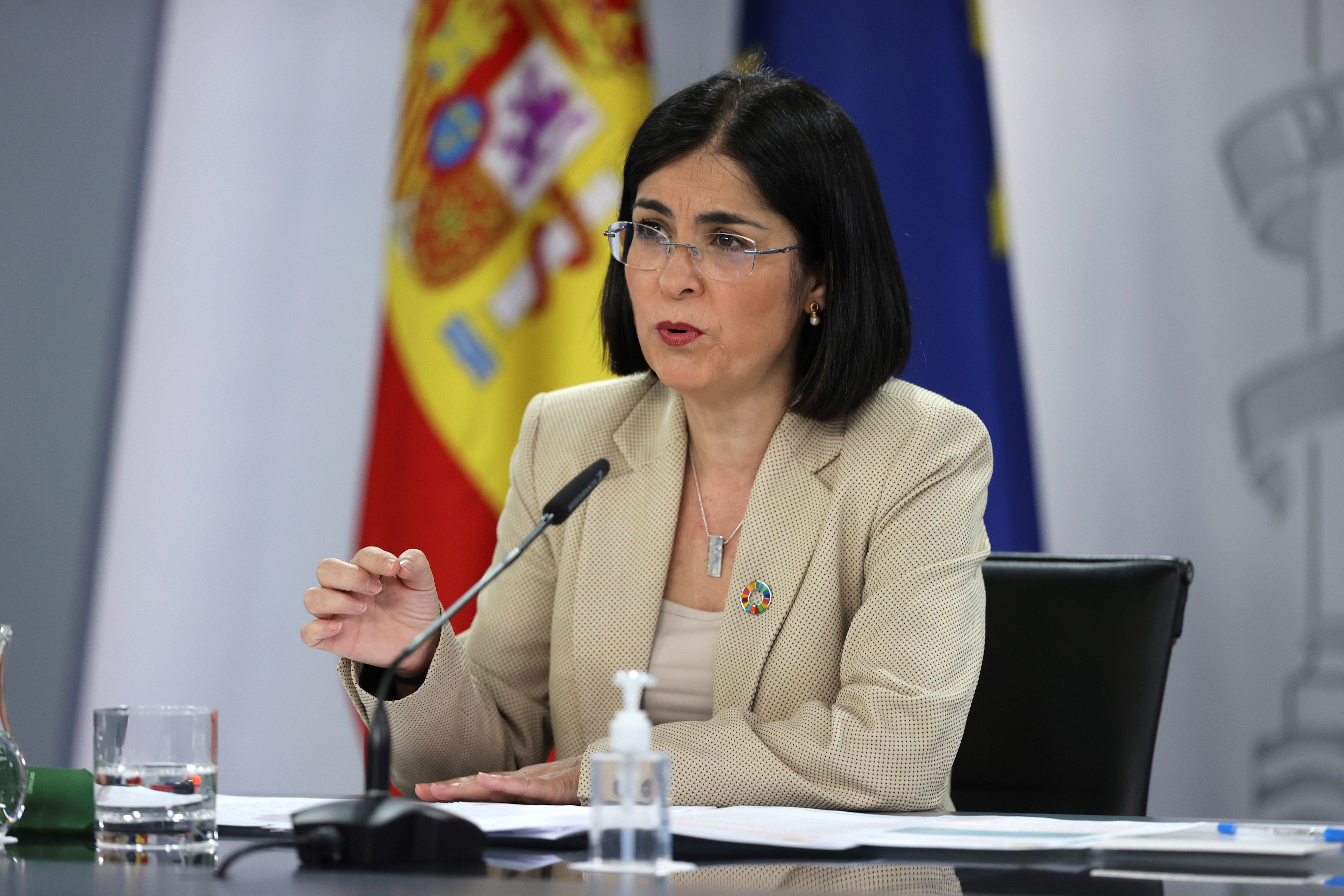Spanish health minister Carolina Darias has confirmed that a single case of thrombosis has been detected so far in Spain after having supplied the AstraZeneca vaccine to more than 900,000 people. She explained this at a press conference on Monday evening after the Spanish Interterritorial Health Council had met to pause the use of the British vaccine as a precautionary measure.
The suspension of AstraZeneca shots in the Spanish state, which comes in addition to similar vaccination halts called by countries including Germany, France and Italy, will last approximately two weeks, the period of time given by the European Medicines Agency to analyze the thrombotic elements that have alarmed medical agencies in several European countries.
The minister gave a message of reassurance to the Spanish people after announcing the precautionary suspension of the vaccination process with AstraZeneca. "The system of pharmacovigilance works," she said, noting that the remaining vaccination processes with the other vaccines available in the state are still fully operational.
Rare type of thrombosis
The director of the Spanish Medicines Agency, María Jesús Lamas, specified that the cases of thrombosis detected as a result of vaccinations with the AstraZeneca jab are unusual, of the cerebral venous type. Although he assured that the Spanish agency has been following the cases closely, it was not until this weekend that the "benefit-risk balance" changed due to the appearance of the Spanish case and the cases in countries such as Norway and Germany. Lamas insisted that the suspension is precautionary and that it is based on the "principle of prudence", adding that it cannot be ruled out that the thrombosis cases detected are consequences of Covid itself.
Asked what will actions will be taken with regard to people who have already been vaccinated or who have received just the first dose of this vaccine, Darias did not give any explanation, insisting on the need to wait until the European Medicines Agency assessment is available.
For his part, the health emergencies director, Fernando Simón, commented that the evolution of the pandemic has stabilized throughout Spanish territory, with the 14 day incidence rate not at 128 per 100,000 people. He welcomed the fact that hospital occupancy remained stable and reported that "the gradual decline" in intensive care bed occupancy is continuing, although the absolute numbers still remain high, he added.
EMA and WHO statements awaited
The European Medicines Agency (EMA) is currently studying the reported thrombotic episodes, which currently number around 30 cases. However, the EMA has noted that, at present, there is no evidence that vaccination has caused these conditions, "which are not listed as side effects of this vaccine."
Similarly, last Friday the World Health Organization (WHO) said that "there is no reason not to use" the AstraZeneca vaccine. "There are people who die every day, so it is normal that there are people who have been immunized and die. The reports available so far do not establish a direct relationship with thrombi, as this percentage has also been observed among the general population", said the WHO in a statement.

